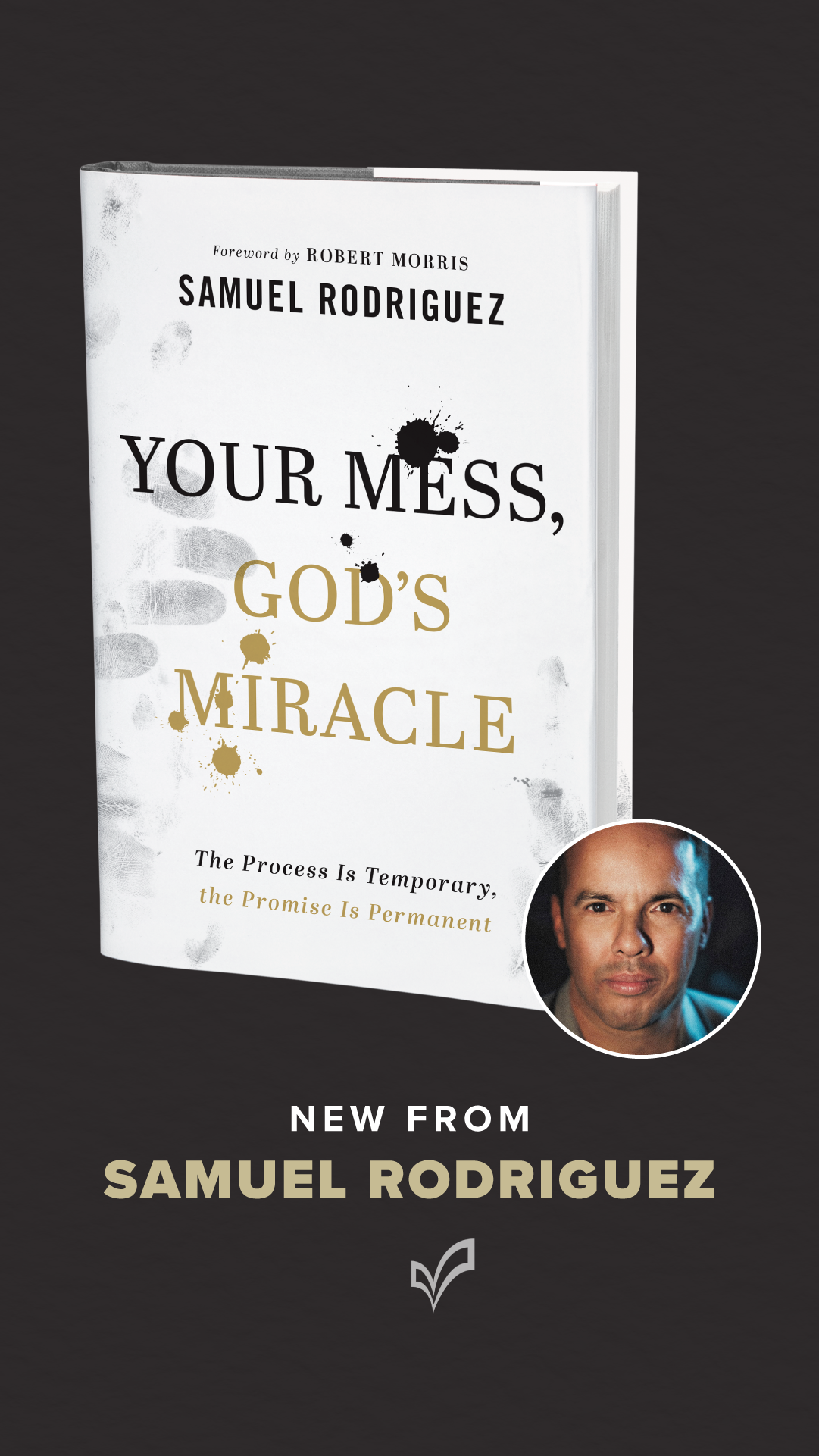
Your Mess CAN Be God’s Miracle
What comes to mind when you think about a messy area of your life? For many people, I imagine their home or some part of it comes to mind. To them, messy means a physical, tangible display of random objects and disorganized debris. Simply put, things are not where they should be.
Which brings us to the other definition of messy—the more complicated, mental, emotional, relational and situational kind of messy. Others may not be able to see this kind of messy in your life—at least, not initially. This form of messy often dwells in shadows and secrets, in shame and subversion. When we live with sinful secrets, habits and relationships that go against what we know is right or what we know God has told us to do, then we experience distress. As the consequences of our choices play out, problems may snowball into an avalanche encompassing most areas of our lives. This kind of messy can seem harder to clean up than the tangible kind, because it requires supernatural intervention to restore not just what you have lost, but what you did not have before.
We find this kind of restoration in one of Christ’s most intriguing encounters—the Samaritan woman at the well (John 4). Jesus engaged her with poise and compassion, someone culturally considered unclean by most Jewish people at the time. He began by doing the unexpected--asking her for a drink of water from the well. Immediately, her curiosity must have been piqued: Who is this stranger violating Jewish religious customs? Why would such a man ask me for a drink? After she voiced her confusion, Jesus turned the tables on her. Now that He clearly had her full attention, He said, “You really should be asking me for a drink of living water to quench that insatiable thirst inside you.”
Basically, He used their location to craft the perfect metaphor for this woman’s messy life. Instead of wondering, why would this Jew ask me, a Samaritan, for a drink? she asked, “How can You give me a drink when You don’t have a container to hold water?” Drawing on the history of their locale, which she likely expected a Jew to know, she tried to unravel his meaning: “Are You greater than our father Jacob?” Not only did she wonder how this man could give her a drink, but her question also implied a more urgent concern: Who are You? She realized this was no typical Jewish stranger resting beside Jacob’s well.
Jesus answered her by explaining the contrast between the two kinds of water being discussed, both the literal well water and the spiritual soul water. While a drink of water from the well would only provide temporary relief to physical thirst, the water He offered her would quench her greatest need once and for all. With that kind of offer, the woman immediately requested this life-giving water so that she would not have to keep returning to the well. In conflating the two kinds of water, though, she was still missing the point. Jesus then told her to go fetch her husband and come back, and she replied that she had no husband. In one of the greatest examples of divine revelation, Jesus removed the blindfold from this woman’s eyes. “You are right when you say you have no husband. The fact is, you have had five husbands, and the man you now have is not your husband. What you have just said is quite true.”
Christ dropped a bombshell, revealing that He knew all about her. But He did it with great kindness. Jesus simply pointed to the truth of her situation, to the factual evidence of the soul thirst that she had been trying to quench in ways that never satisfied her longing for more. He did not confront her right away or call her out on her past behavior. He made it clear that He was not there to judge her or condemn her. He was there to heal her. He was there to bless her mess.
Jesus waited to confirm His identity directly until the woman arrived at the truth. Rather than announce that He was the Messiah when they first met, He demonstrated His power to see her and her need for what He offered. Jesus helped her see what she could not see in herself. And He helped her see it in a way that resulted in grace and not shame.
The woman became so excited about meeting Jesus that she left her water jar at the well. We can imagine this had probably never happened before. She went there on a mundane errand in the middle of the day and left transformed by her encounter with the Messiah, the Giver of living water. Her testimony must have made quite an impression, too, because many of her neighbors from town also believed in Christ. No longer would she be known as a woman with questionable morals and a shady past. Now she was an evangelist for the Messiah who had changed her life.
When you encounter Jesus and drink the living water that only He gives, when you experience the ability to see clearly, your life will never be the same. He is not put off by your mess, by your past or by your inability to see yourself clearly. Jesus told His followers, “I have come that they may have life, and have it to the full” (John10:10). And His gift of new life remains the same for us today. Never underestimate the impact your mess-turned-miracle can have on other people. God uses our messes to get our attention as well as the attention of others. Just as we are inspired by the examples of the blind man and the Samaritan woman, other people will soon be inspired by you.
Adapted from Your Mess, God’s Miracle: The Process Is Temporary, the Promise Is Permanent
by Samuel Rodriguez. Copyright © 2023. Used by permission of Chosen Books, a Division of Baker Books. All rights reserved.
Rev. Samuel Rodriguez is president of the National Hispanic Christian Leadership Conference, executive producer of “Breakthrough” with 20th Century Fox and a bestselling author. CNN and FOX News have called him “the leader of the Hispanic Evangelical movement” and “Time Magazine” nominated him among the 100 most influential leaders in America. His newest book, “Your Mess, God's Miracle” (Chosen Books), releases April 2023.
Website |pastorsam.com Twitter |@nhclc Instagram |@pastorsamuelrodriguez Facebook | /pastorsamuelrodriguezjr



